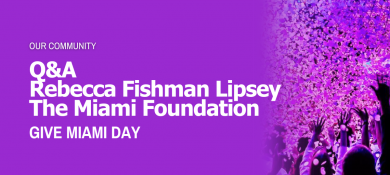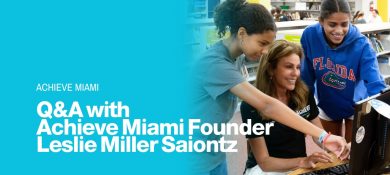 Andrew C. Hall was a pre-medical student who took the LSAT on a dare from his fraternity brothers. Now, 45 years later, it’s safe to say that it’s a good thing he accepted that challenge.
Andrew C. Hall was a pre-medical student who took the LSAT on a dare from his fraternity brothers. Now, 45 years later, it’s safe to say that it’s a good thing he accepted that challenge.
Hall spoke with Florida Trend magazine this month, covering everything from growing up during the Holocaust and his work on behalf of terrorism victims, to winning a $2.8 billion judgment against the Cuban government.
Figuring there was more to this story, Soundbytes decided to go right to the source with a few more questions of our own:
Q: How have your personal life experiences impacted and/or guided the course of your career?
My family’s struggles, starting with the Holocaust, escaping from communist controlled Poland, and rebuilding their lives in the United States have been the driving forces of my career. I have a deep-seeded reaction to the abuse of power. Lawyers are unique because we have the power to defend those who have been victimized by the misuse or abuse of power, whether the abuser is an individual, a corporation or a government.
Q: What are your most memorable cases?
Representing John Ehrlichman during the Watergate trials was extremely memorable because this was at the beginning of my career and it was the highest profile case in the nation. Working on the USS Cole bombing was so difficult because it took a huge investigative effort to link Sudan to the terrorist attack, and finally representing Gustavo Villoldo in his quest for justice against the Cuban regime not only because of the magnitude of the result but also because of the justice the Villoldo family finally received.
Q: What advice would you give to young lawyers?
Any good trial lawyer must have a thorough knowledge of the facts of the case, an exhaustive knowledge of all aspects of law related to the case, and the ability to anticipate questions that may come up that are not apparent. Above all, every significant case requires a relentless hunger for justice coupled with a long-term commitment to seeing the case through, most particularly the terrorism cases. Most of the terrorism cases that I work on take years to resolve – and then even more time to collect. But the end of the journey is worth it.
Q: Do you have any regrets?
Every time I have an envious thought about anybody else’s success, I am immediately reminded of my own success and so I am very happy.







 See More Blogs
See More Blogs
Comments